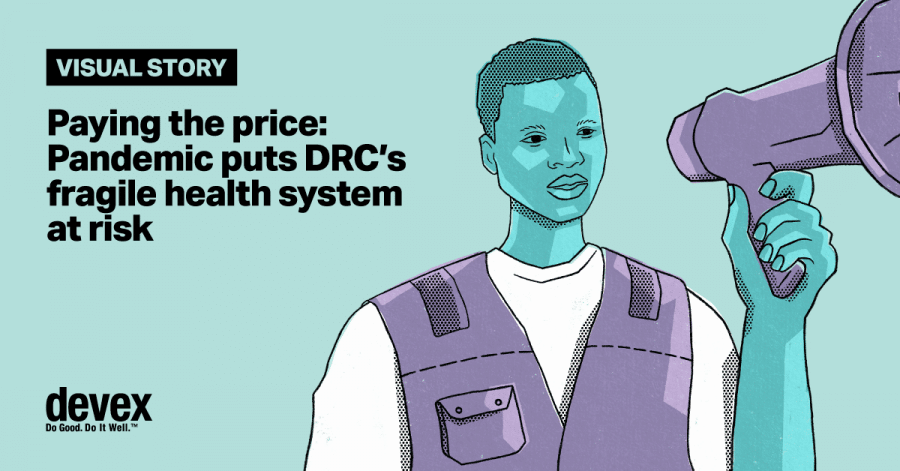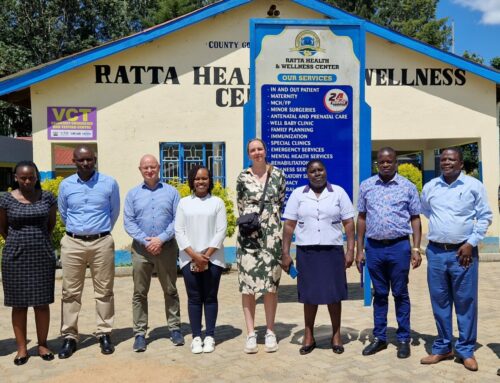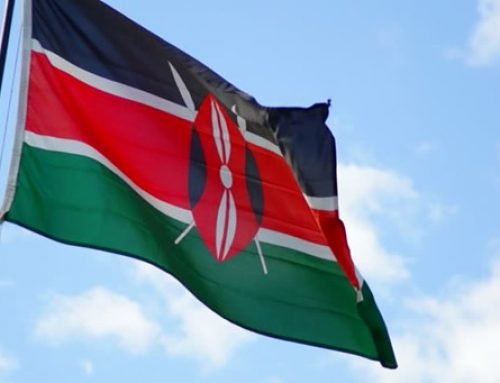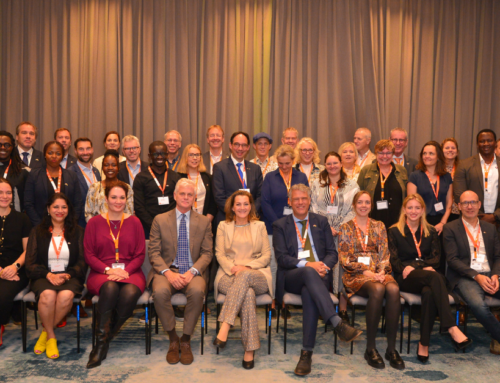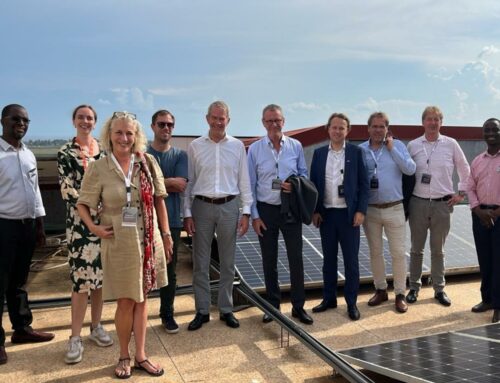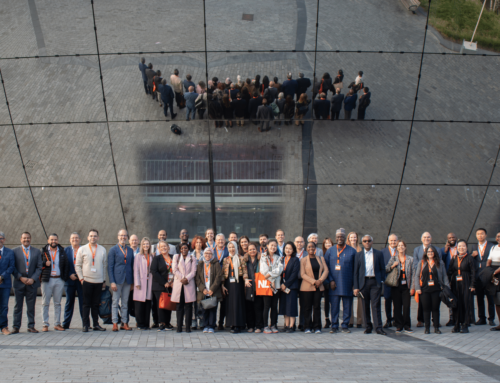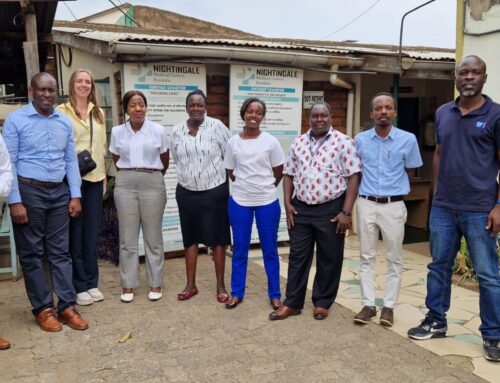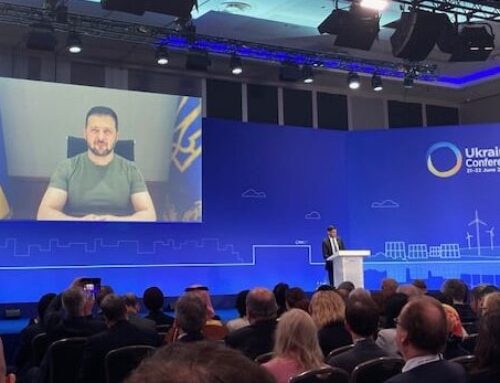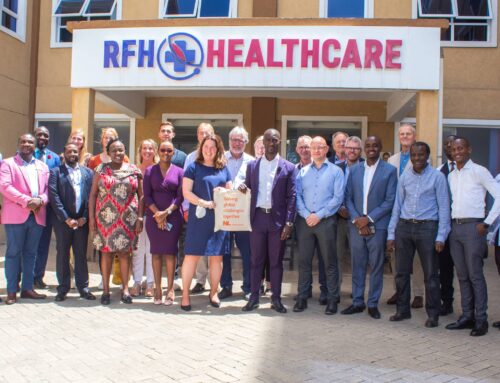How are women, young people, and health workers dealing with COVID-19 in DRC? Devex journalist Sam Mednick wrote an in-depth and compelling story about TFH Partner Cordaid’s sexual and reproductive health and rights programme in Congo’s Kivu provinces, with this one question in mind.
Katana, South Kivu. The ‘Stop violence against girls and women’ campaign is part of the Jeunesse3 programme. © Cordaid
The communities of North and South Kivu provinces in the Democratic Republic of the Congo have reluctantly become accustomed to uncertainty. A drawn-out Ebola epidemic coupled with conflict caused by warring armed groups already complicated the effective delivery of sexual and reproductive health services for women and young people. But COVID-19 further compounded the problems. “When the pandemic arrived, no one was expecting it, and no one knew how to manage it,” Dr. Immaculée Mulamba Amisi said, an expert in sexual and reproductive health for Cordaid in DRC.
PROMOTING SEXUAL HEALTH WHILE BATTLING COVID-19
Sexual health services were cut and health workers urged to focus on preventative measures to fight the coronavirus. Lack of proper equipment and facilities meant health workers quickly became ill and unable to treat patients, and women and young people who needed sexual health advice, were caught in a difficult situation.
But health workers and the global health community continue to advocate for the continuation of these services while battling COVID-19. Pacifique Mugisho Mukaba, a youth ambassador with Cordaid’s Jeune S3 programme, which educates communities about sexual and reproductive health issues, is determined to keep going.

WORKING TOWARD UNIVERSAL HEALTH COVERAGE
Before the pandemic hit, Cordaid was working toward universal health coverage with the DRC government and providing assistance to health workers and youth ambassadors. Despite the current situation, achieving UHC is still a priority. “In the long term, it is obviously universal health coverage that is very important in DRC. If we are able to implement universal health coverage, I think that we will respond to many problems,” Amisi said.
This is a Devex article. Read the full visual story.


